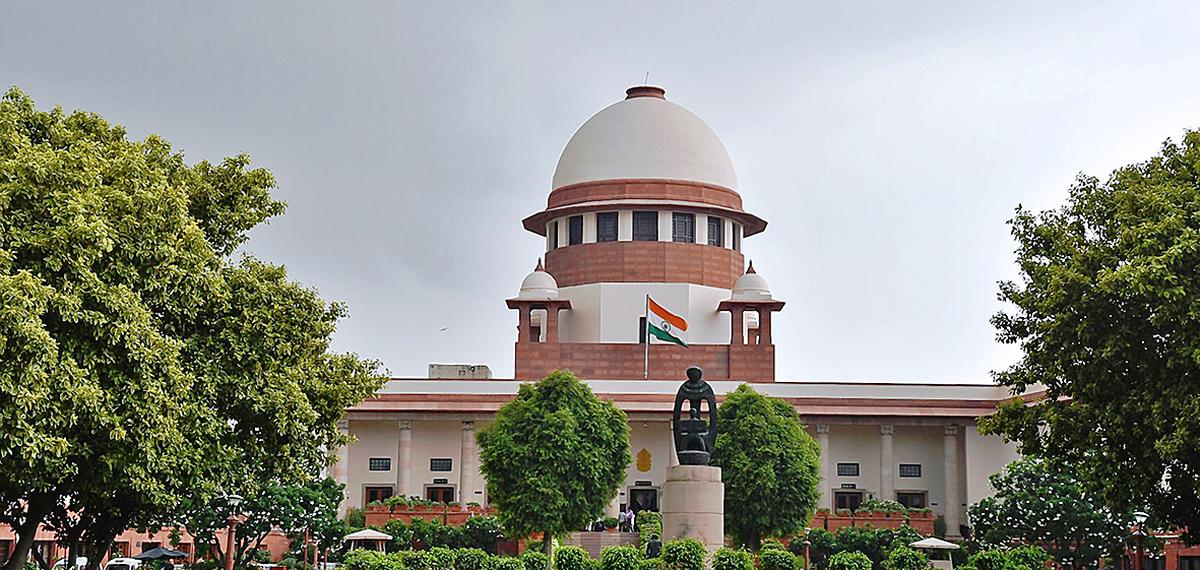NEW DELHI, May 18: Controversial film “The Kerala Story” will be now be screened in theatres of West Bengal as the Supreme Court Thursday stayed its ban in the state while asking its producer to put a disclaimer that the movie was a “fictionalised version” and there was no authentic data to the claim that 32,000 Hindu and Christian girls converted to Islam.
Observing that the law cannot be used to “put a premium on public intolerance”, the top court also directed the Tamil Nadu government and its instrumentalities including the police to take any “tacit or express, formal or informal” to prevent screening of the movie in the state and provide adequate security to moviegoers.
“Bad films bomb at the box office… Moreover, the state is duty bound to maintain the law and order as the film has been granted certification by the Central Board of Film Certification (CBFC),” the bench headed by Chief Justice D Y Chandrachud said.
“The legal provision (Section 6 (1) of the West Bengal Cinema Regulation Act, 1954) cannot be used to put a premium on public intolerance. Otherwise, all films will find themselves in this spot,” it said.
“Prima facie, we are of the view at this stage that the prohibition which has been imposed by the state of West Bengal suffers from infirmities and the prohibition is not justified on the basis of the materials which have been displayed on records in the counter affidavit. Hence the order of the additional secretary of the government of West Bengal in the Department of Information and Cultural Affairs… Shall remain stayed,” the bench ordered.
The bench, also comprising justices P S Narasimha and J B Pardiwala, decided the content of the disclaimer, which has to be inserted at the start of the movie before 5 pm on May 20.
“Mr (Harish) Salve, on behalf of the film producer, submits that to set the controversy aside, the existing disclaimer shall add another disclaimer as decided by 5 pm on 20 May 2023. The disclaimer shall say- 1. There is no authentic data to back up the suggestion that the figure of conversion is 32000 or any other figure; 2. The film represents a fictionalised version,” it ordered.
It then took note of the submissions of Additional Advocate General Amit Anand Tiwari, appearing for Tamil Nadu, that the screening of the film has not been directly or indirectly prohibited in the state.
“While recording the contents of the counter affidavit and the assurance given on behalf of the state of Tamil Nadu, we direct that adequate security be provided for every cinema hall and requisite arrangements shall be made for the safety of movie-goers who wish to see the film in any theatre in the state,” it said.
It said “no steps whatsoever whether tacit or express, formal or informal” shall be taken by Tamil Nadu or by any of its officers or instrumentalities including the police to prevent the screening of the film.
The top court was hearing cross-pleas with the producer of the film challenging the ban on its screening in West Bengal and the decision by theatre owners in Tamil Nadu to not show the movie in the state while journalist Qurban Ali has challenged the Kerala High Court order refusing to stay the release of the film.
The bench then posted the petitions for final disposal on July 18 saying the judges would like to watch the movie before deciding the challenge to the grant of certification to “The Kerala Story”.
“The Kerala Story”, starring Adah Sharma, was released in cinemas on May 5. Directed by Sudipto Sen, the film claims women from Kerala were forced to convert to Islam and recruited by the terror group Islamic State (IS).
At the outset of proceedings, senior advocate Salve, appearing for producer Sunshine Pictures Pvt Ltd, said the states cannot sit in appeal over the grant of certification to the movie.
He referred to judgements to buttress his submissions that it was held that the Supreme Court cannot sit in appeal over the CBFC certification.
Senior advocate Kapil Sibal, appearing for a party opposed to the movie, objected to the submissions saying there was a trend to vilify a particular community ahead of elections and termed the movie as a “propaganda” movie.
Salve assailed the stand of the West Bengal government saying there is nobody in Maharashtra challenging it and the Bengal government is worried about the incident in Akola.
He said that Tamil Nadu resorted to “spurious exercise” that people did not like the movie. “The theatres were full up to 95% or 100% capacity,” he claimed.
Senior advocate Huzefa Ahmadi opposed the film saying, “If the film runs its course, the damage will be done.”
The prejudice created by a “propaganda film” is also to be seen, the senior lawyer said, adding “Don’t see it just from the perspective of violence. The community will face discrimination also when he goes to rent a house.”
Ahmadi urged the judges at the bench to watch the movie over the weekend and list it next week.
The Madras High Court has rejected a petition seeking to challenge the certification of the film granted by the CBFC.
A division bench of the Kerala High Court on a similar petition had declined to grant interim relief. (PTI)


